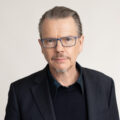Nefco’s key activities have included the management of three carbon market facilities under the Kyoto Protocol—the Baltic Sea Region Testing Ground Facility (TGF), the Nefco Carbon Fund (NeCF) and the Nefco Norwegian Carbon Procurement Facility (NorCaP)—on behalf of public and private sector investors.
The last year of operations for TGF was 2015 and for NeCF and NorCaP 2021. They were closed as planned, having generated 31.6 Certified Emission Reductions (CERs).
Nefco Carbon Fund
Building on the capacity and competence through the management of the Baltic Sea Region Testing Ground Facility (TGF), Nefco established a global Public-Private Partnership carbon procurement vehicle in 2008: the Nefco Carbon Fund (NeCF). NeCF acquired greenhouse gas emission reductions under the Joint Implementation (JI) up to 2012 and the Clean Development Mechanism (CDM) until the end of 2020.
The fund’s public and private investors consisted of European power utilities and Nordic governments. At its peak, NeCF was capitalised at EUR 165 million. After the market changes in 2011–2012, NeCF’s activities were consolidated and active procurement paused.
NeCF financed a total of 19 projects that delivered 6.76 million emission reductions.
Nefco Norwegian Carbon Procurement Facility
The global Nefco Norwegian Carbon Procurement Facility (NorCaP) was established in 2013 in response to the Norwegian government’s desire to ensure the continued emission reduction activity of existing, but vulnerable, Clean Development Mechanism (CDM) projects. Many registered CDM projects were facing discontinuation due to low market price. At the same time, NorCaP assisted Norway in meeting its climate commitments in a cost-effective way.
NorCaP purchased Certified Emission Reduction Units (CERs) from the second commitment period of the Kyoto Protocol (2013–2020). The facility was wholly funded by the Norwegian Ministry of Climate and the Environment and managed by Nefco.
NorCaP attracted significant interest from project developers, with almost 350 project proposals, demonstrating that strong demand remained in the market. NorCaP also showed that emission reductions could be sourced cost-effectively.
Procurement was closed in 2015 when the facility reached its target through Nefco’s contracting of some 30 million CERs from 14 projects in Latin America and Africa. These projects delivered 22.2 million emission reductions.
Baltic Sea Region Testing Ground Facility
The Baltic Sea Region Testing Ground Facility (TGF) was used mainly for the procurement of emission reductions via a Joint Implementation (JI) mechanism under the Kyoto Protocol. Nefco was an early actor in the project-based carbon markets. Through the multilateral energy cooperation in the Baltic Sea Region (BASREC), Nefco took the initiative to set up a pioneering regional carbon fund in 2003.
The first participants in TGF were the Nordic governments and Germany, but the fund converted itself into a public-private partnership by welcoming nine private participants, primarily from the energy sector. Energy companies were seeking compliance units to meet their obligations under the EU Emissions Trading Scheme (EU ETS). It was ultimately capitalised at EUR 35 million. TGF ended its activities in 2015 with 11 implemented JI projects and 2.6 million carbon credits delivered to investors.
Nordic Partnership Initiative
The Nordic Partnership Initiative on Upscaled Mitigation Actions (NPI) carried out technical assistance programmes in the solid waste sector in Peru and the cement sector in Vietnam between 2011 and 2018, addressing general data and capacity gaps as well as sector-specific issues.
Related publications
Want to know more?
Submit your contact request and we will be in touch.
Contact us
